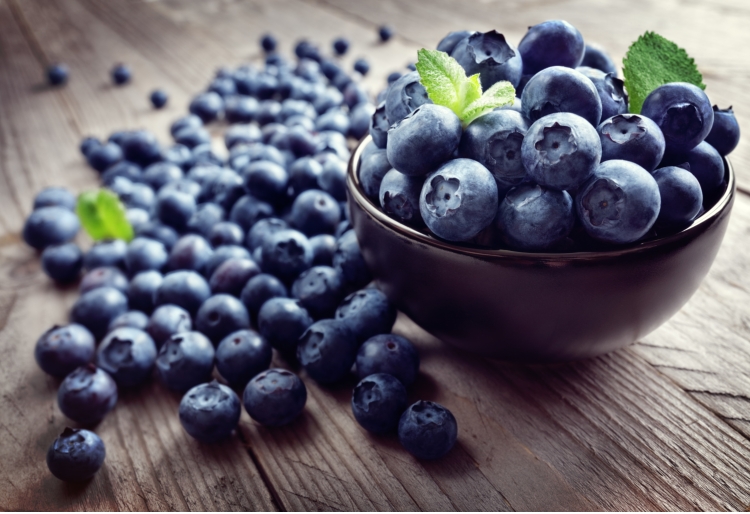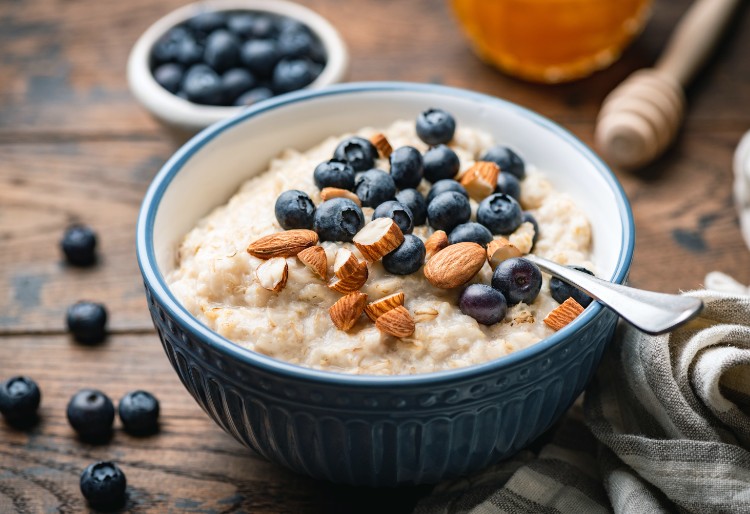Blueberries: Benefits and properties
Blueberries are ideal for strengthening the immune system. They are low in fats and are a source of vitamins C and K. Discover how to include them in your meals.
fresh food
Share

What are blueberries and what are they good for?
The blueberry is a plant from the Ericaceae family, which gives small edible berries with a sweet and slightly sour flavour. There are two types of blueberry, the blueish black ones and the red ones. The plant originates from North America and from northern parts of Europe. It is one of the foods with the highest antioxidant power that exists, so they are considered as one of the most beneficial fruits for your health. This antioxidant power is due to the combination of their organic acids and the 15 anthocyanins that give them their peculiar colour. In addition, they contain proanthocyanins, a dozen flavonoids and tannins with a similar effect. One of them is resveratrol, which is also found in black grapes.
Blueberries: Properties and nutritional value
100 grams of blueberries contain 11.3 grams of carbohydrates, 3 grams of fibre, 2 milligrams of sodium, 85 grams of water and 0.6 grams of proteins. They don’t contain fats, or cholesterol and provide 48 kcal. In addition, they contain some important vitamins: source of vitamin C (20mg) and K (19.3 µg), vitamin A (5.7 µg) or vitamin B-9 (6 µg).
It is one of the foods with the highest antioxidant power that exists, so they are considered as one of the most beneficial fruits for your health

Benefits of blueberries
- The anthocyanins that give blueberries their colour, and that are found in larger quantities in wild blueberries with a dark flesh, have antioxidant and anti-inflammatory properties.
- Blueberries are allies in diets to lose weight thanks to their low-calorie content, source of vitamins C and K, richness in manganese and, above all, for their source of fibre.
- Vitamin C contributes to the normal working of the immune system and contributes to the normal formation of collagen for the normal working of bones, cartilage, skin and gums.
- Vitamin K and manganese help to keeping bones in normal condition. Furthermore, manganese contributes to the protection of cells against oxidative damage.
How do you include blueberries in all meals?
Blueberries can be eaten fresh or frozen, also dry, pressed, in juices or jellies. Frozen blueberries preserve the vitamins and anthocyanins whilst dried blueberries or blueberries heated to make jam lose a lot of vitamin C. You can eat them at the end of a meal, like any fruit, but also in breakfast with plain yoghurt and other forest fruits like strawberries or redcurrants or to make our own juices mixed with other fruits. If you love desserts, you can use them to make blueberry muffins or a blueberry cheesecake. Delicious!






